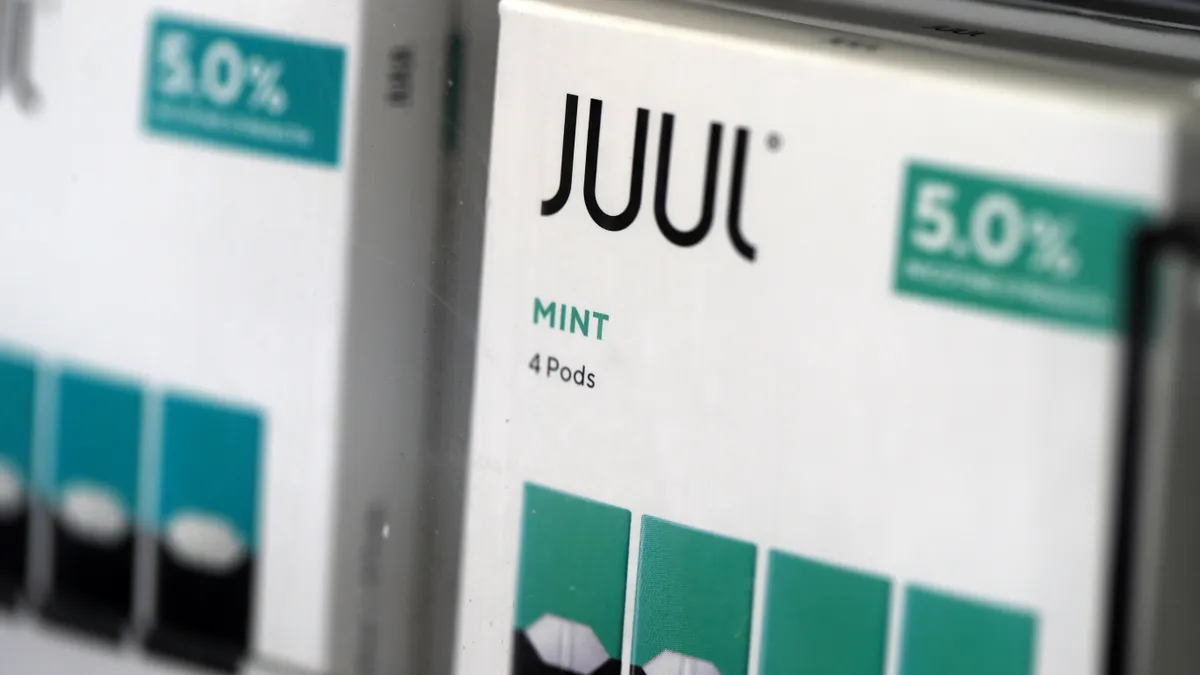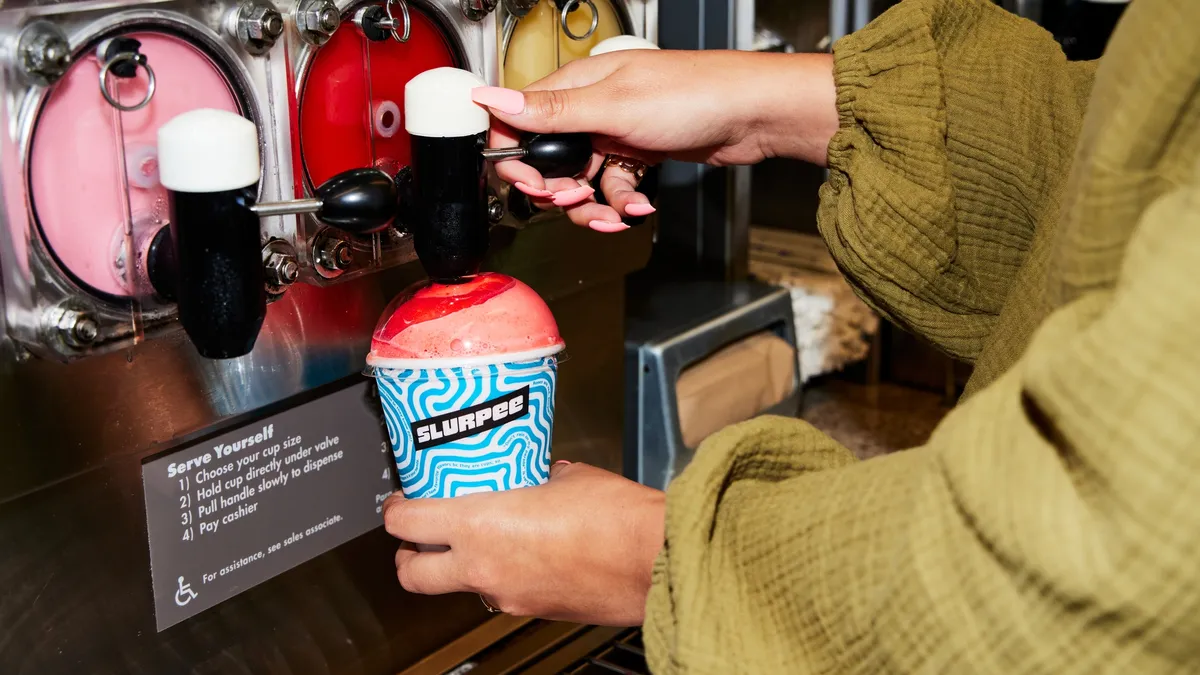Dive Brief:
- Tobacco giant Altria has announced it will pay $235 million to settle at least 6,000 Juul-related lawsuits both federally and in individual states pending court approval, according to a Wednesday press release.
- These lawsuits include roughly 50 economic class actions, 4,500 personal injury actions and 1,500 school and other government entity actions, along with a consolidated state court proceeding with about 750 cases, according to the release.
- Juul and Altria, which owned a third of the company until exchanging its stake for a license to use some of Juul’s technology, faced accusations that the e-cigarette company targeted underage users, leading to a rise in teen users.
Dive Insight:
Richmond-based Altria expects to pay this latest settlement during the second quarter.
“This settlement brings to a close the vast majority of our pending JUUL-related litigation,” said Murray Garnick, Altria’s executive vice president and general counsel, who noted the company believes the claims are “meritless” but nevertheless wants to avoid the time and uncertainty of litigation.
There are still a handful of remaining cases to be resolved: three cases brought by attorneys general, 35 cases brought by Native American tribes, 17 antitrust cases and three cases in Canada.
Altria is the owner of several tobacco brands including Philip Morris cigarettes and John Middleton cigars, in addition to vaping company Njoy which it bought in March after stepping away from its previous stake in Juul. It also has investments in alcohol company Anheuser-Busch InBev and cannabis firm Chronos.
Juul has been whittling down its own lawsuits in relation to allegations that it targeted underage consumers, with its largest payout thus far being over $460 million to six states and Washington, D.C.
The late-2022 National Youth Tobacco Survey found that more than 10% of middle- and high-school students had used tobacco in the month the survey looked at, and the majority of them used e-cigarettes. Almost 85% of youths who used them said they used flavored e-cigarettes. The U.S. Food and Drug Administration banned most flavors in vapes in 2020.






